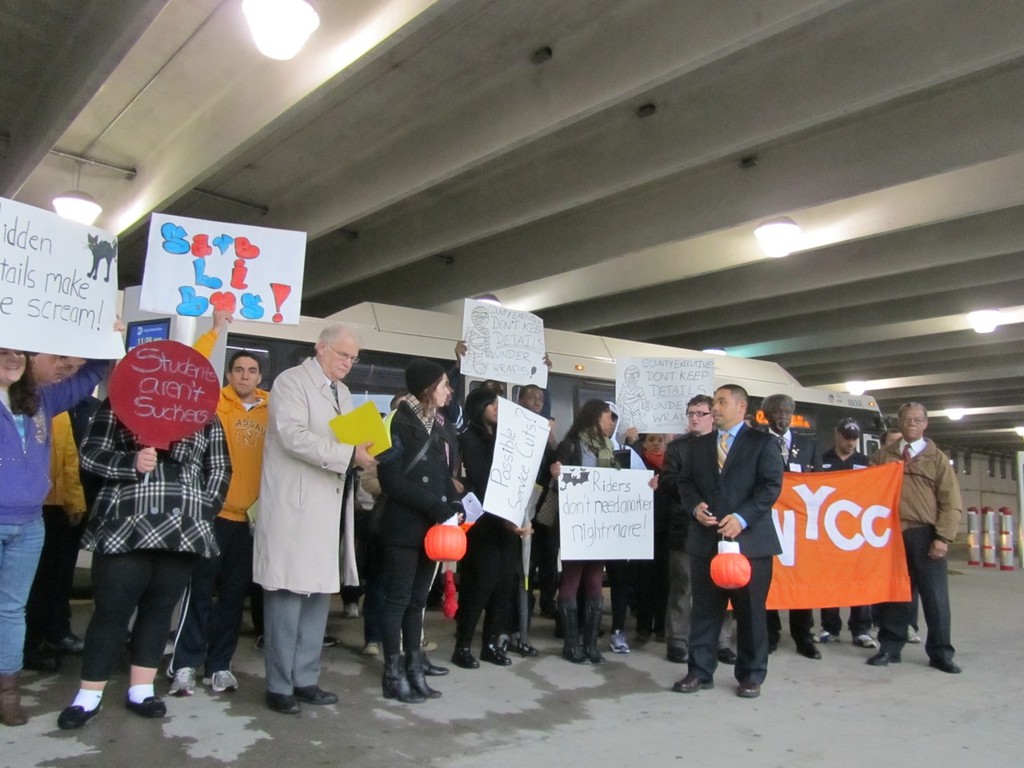Students rally for more disclosure on bus contract
Veolia Transportation Inc. recently signed a contract to take over operation of Long Island Bus, run by the Metropolitan Transportation Authority. The Nassau County Attorney’s Office is reviewing the agreement before it is submitted to the county Legislature for a vote, but members of New York Public Interest Research Group Fund want the details now.
That was the message they sent when they gathered with New York Communities for Change and other community organizations at the Mineola train station last Thursday morning.
NYPIRG’s Jason Chin-Fatt said thousands of signatures and letters had been collected, encouraging full disclosure of the contract by County Executive Ed Mangano, as well as creation of a Riders Bill of Rights.
Riders would like to be safeguarded against fare hikes and route changes for the next five years, said the Rev. Paul Johnson of the Unitarian Universalist Congregation at Shelter Rock in Manhasset. Such guarantees would allow riders to ease into the new company and be protected from unfair changes, Johnson said. “We’re worried that the changes … in our public transportation will be deleterious to the most vulnerable in our society,“ he said.
Veolia is set to assume control of the system on Jan. 1, 2012. The fare is now $2.25 and is expected to remain the same throughout the first year of Veolia’s contract, as will bus routes. But Veolia will be able to make changes after year one. According to county officials, it will cost about $103.8 million to fund the new transportation system. The Long Island Bus budget is currently $145 million. Funding for the new bus system will come from fare revenue and state and federal aid, while the county will contribute $2.5 million to $4 million.
Rally attendees said they were appalled that the county would contribute so little to the bus system. The county previously contributed $9 million to the MTA system. With less money coming in from the county, Johnson said his congregation fears rates will rise to make up for the loss in revenue. “$2.5 million just won’t cut it,” he said.

 56.0°,
Overcast
56.0°,
Overcast 




